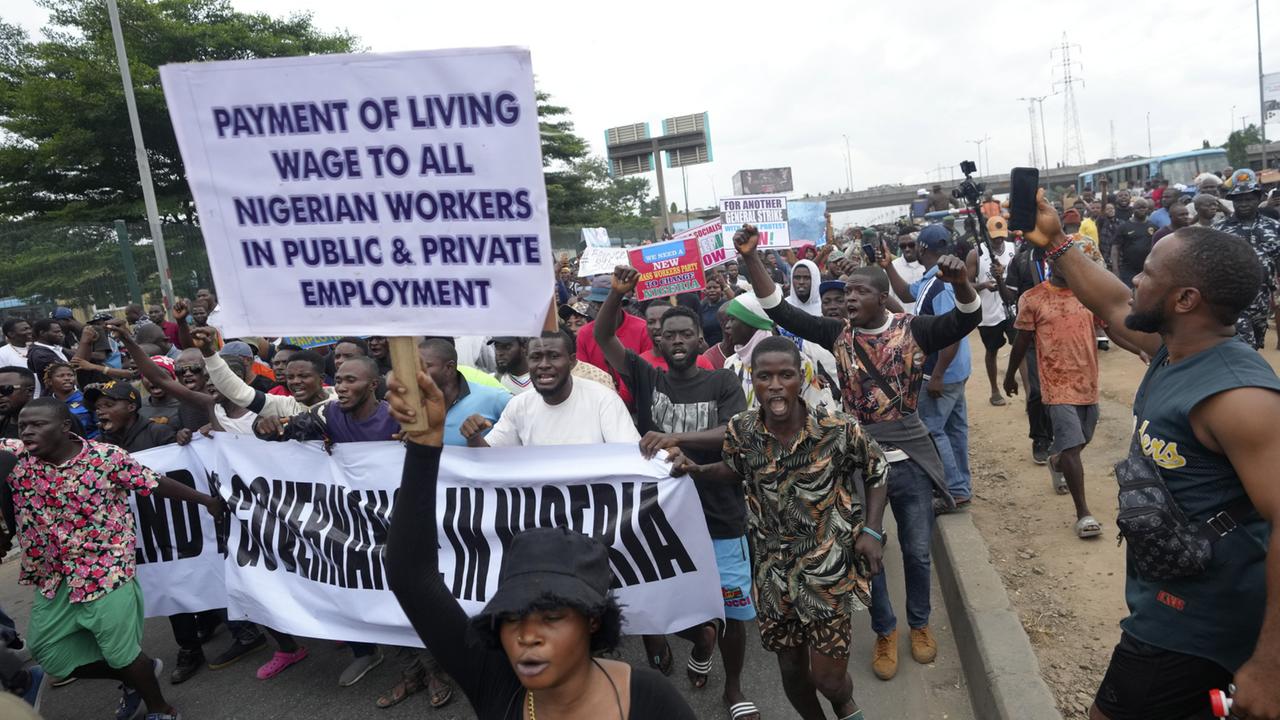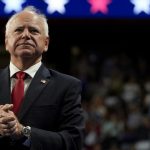In Nigeria, President Tinubu has called for an end to the protests against mismanagement and high living costs. But the demonstrators have no intention of doing so. The country is in a deep crisis.
Nigeria's President Bola Tinubu said at the weekend that he had heard the youth in particular loud and clear. The government would take care of the concerns of the citizens. But the country must not be allowed to be torn apart by violence and destruction, said the President.
Since August 1, thousands of people have taken to the streets across Nigeria to protest against high living costs and poor governance. Participants in the protest movement are using the hashtag #EndBadGovernance to call on President Tinubu to reverse certain reforms, such as the suspension of fuel subsidies.
President Tinubu calls for an end to protests
“These decisions I have taken were necessary if we are to reverse decades of economic mismanagement that have not served us well,” Tinubu said. “Yes, I agree, I bear the responsibility. But I can assure you that my aim is to serve the people.”
President Tinubu called for an end to the protests. Nigeria's security forces should continue to maintain peace, law and order within the framework of human rights conventions.
At least 13 dead so far
According to Amnesty International, at least 13 people have died in the protests so far, including minors according to eyewitnesses. The human rights organization alleges that Nigerian security forces used “deliberately lethal tactics” against peaceful demonstrators.
Some demonstrators feel attacked, as they told the French news agency AFP: “The police came and fired tear gas at us. There was this woman with a small child, I think the child was not even three months old,” said one of the protesters.
Another protester reported: “They barricaded us with barbed wire and came over the barbed wire to shoot tear gas at us. One of them shot tear gas right in my eye.”
Heavy Economic crisis
The national police chief on Thursday rejected allegations that security officials had deliberately attacked demonstrators. Local media reported that security forces had fired tear gas at a group of demonstrators in the capital Abuja. On Saturday, police said that more than 600 people had been arrested within two days for robbery, arson and destruction of property.
Africa's most populous country is going through a serious economic crisis after President Tinubu introduced reforms. Among other things, he partially abolished petrol and electricity subsidies after taking office.
At the same time, inflation has caused prices to skyrocket – many people are now struggling to make ends meet on a daily basis, says 38-year-old Suwaiba Abdullahi from Abuja. “There is no security in the country. Men sometimes struggle to feed their families, so it is now often the women who also go out to earn a living.”
Demonstrations go further
The last major protest movement in Nigeria took place in October 2020. At that time, demonstrators demanded the abolition of a special police unit that was accused of serious human rights violations. According to Amnesty International, at least ten demonstrators were killed.
The organizers of the current #EndBadGovernance protests have announced that they will continue the demonstrations in the coming days – despite the government's warning.





